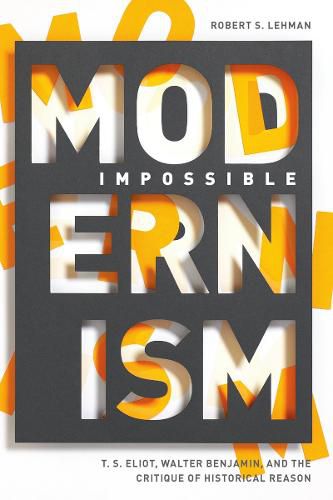Readings Newsletter
Become a Readings Member to make your shopping experience even easier.
Sign in or sign up for free!
You’re not far away from qualifying for FREE standard shipping within Australia
You’ve qualified for FREE standard shipping within Australia
The cart is loading…






Impossible Modernism reads the writings of German philosopher and critic Walter Benjamin (1892-1940) and Anglo-American poet and critic T. S. Eliot (1888-1965) to examine the relationship between literary and historical form during the modernist period. It focuses particularly on how they both resisted the forms of narration established by nineteenth-century academic historians and turned instead to traditional literary devices-lyric, satire, anecdote, and allegory-to reimagine the forms that historical representation might take. Tracing the fraught relationship between poetry and history back to Aristotle’s Poetics and forward to Nietzsche’s Untimely Meditations, Robert S. Lehman establishes the coordinates of the intellectual-historical problem that Eliot and Benjamin inherited and offers an analysis of how they grappled with this legacy in their major works.
$9.00 standard shipping within Australia
FREE standard shipping within Australia for orders over $100.00
Express & International shipping calculated at checkout
Impossible Modernism reads the writings of German philosopher and critic Walter Benjamin (1892-1940) and Anglo-American poet and critic T. S. Eliot (1888-1965) to examine the relationship between literary and historical form during the modernist period. It focuses particularly on how they both resisted the forms of narration established by nineteenth-century academic historians and turned instead to traditional literary devices-lyric, satire, anecdote, and allegory-to reimagine the forms that historical representation might take. Tracing the fraught relationship between poetry and history back to Aristotle’s Poetics and forward to Nietzsche’s Untimely Meditations, Robert S. Lehman establishes the coordinates of the intellectual-historical problem that Eliot and Benjamin inherited and offers an analysis of how they grappled with this legacy in their major works.